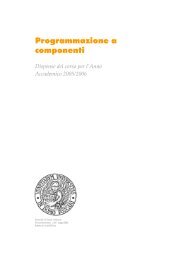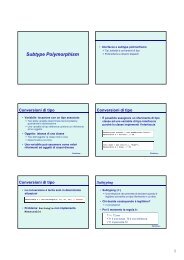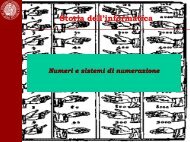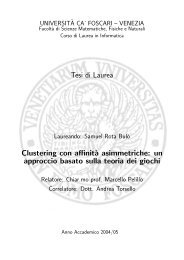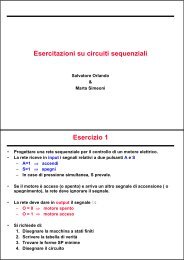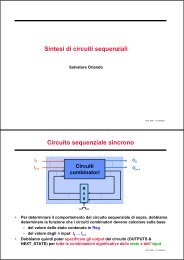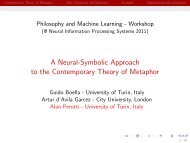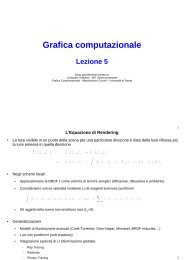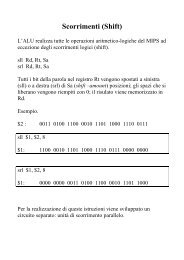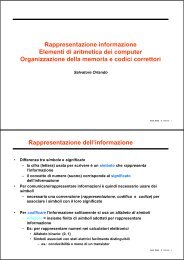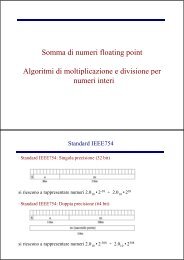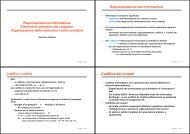Foscari - Dipartimento di Scienze Ambientali, Informatica e Statistica
Foscari - Dipartimento di Scienze Ambientali, Informatica e Statistica
Foscari - Dipartimento di Scienze Ambientali, Informatica e Statistica
You also want an ePaper? Increase the reach of your titles
YUMPU automatically turns print PDFs into web optimized ePapers that Google loves.
he doesn't get too far out in front, to where he can't hear their footsteps.' Tommy<br />
Lasorda (US sports personality)<br />
5 “A leader is someone ___________________ knows what they want to achieve and can<br />
communicate that.” Margaret Thatcher (British politician)<br />
In the text below, all the relative pronouns have been taken out. Put them back in, where<br />
appropriate.<br />
A leader among men<br />
Carly Fiorina, has been called America's most powerful business woman, is Chief Executive of the<br />
huge Hewlett Packard group, manufactures computers and printers. Ms Fiorina, has spent most of her<br />
working life in the telecommunications industry, started out as a sales representative with AT&T, she<br />
rose rapidly through the ranks. Later she was a key player in the creation of the equipment and<br />
components company Lucent Technologies, she was in charge of the sales and marketing of<br />
networking products. Ms Fiorina now oversees an organisation is one of the 30 lea<strong>di</strong>ng companies in<br />
the Dow Jones Industrial Average.<br />
22 Prefixes<br />
When you are rea<strong>di</strong>ng, you will come across unfamiliar words. It is often possible to guess the<br />
meanings of these words if you understand the way words in English are generally formed.<br />
prefix stem suffixes<br />
An English word can be <strong>di</strong>vided into three parts: a prefix, a stem, and a suffix. Pre-means 'before'. A<br />
prefix, therefore, is what comes before the stem. Consider, as an example, the prefix de- (meaning<br />
'reduce' or 'reverse') in a word like demagnetize (meaning 'to deprive of magnetism'). A suffix is what<br />
is attached to the end of the stem. Consider, as an example, the suffix -er (meaning 'someone who') in<br />
programmer ('a person who programs').<br />
Suffixes change the word from one part of speech to another. For example, -ly added to the adjective<br />
quick gives the adverb quickly. Prefixes, on the other hand, usually change the meaning of the word.<br />
For example, un- changes a word to the negative. Unmagnetizable means 'not capable of being<br />
magnetized'.<br />
Let us now consider some prefixes, their usual meanings, and how they change the meanings of<br />
English words.<br />
Prefixes<br />
126



